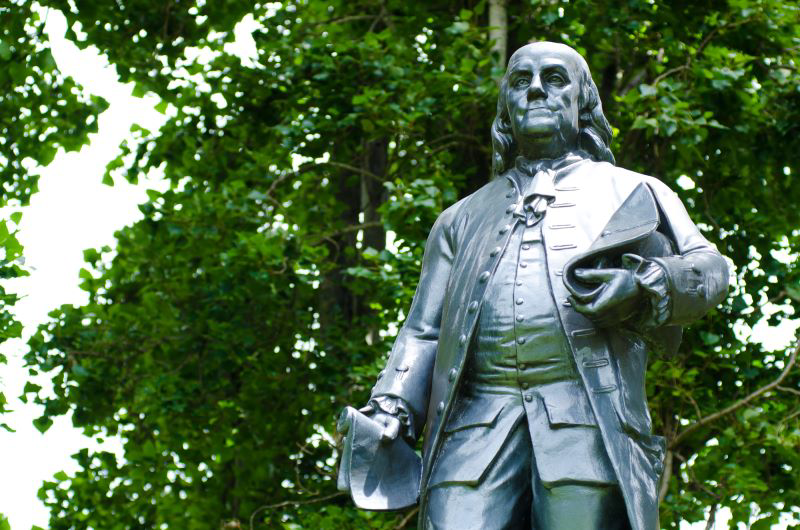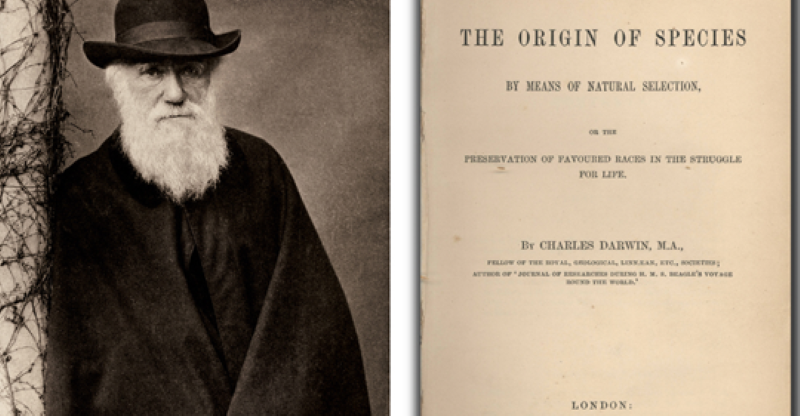America: At the Crossroads (Part 1)
Sign up for a six month free
trial of The Stand Magazine!
Most people familiar with Scripture would agree that the Israelites needed a constant reminder of where they came from, and to whom they belonged.
We too, today, as both Christians and citizens born in the free land of this great country need to be reminded of our heritage as well.
As you know, we are mere days away from one of the most important presidential elections of this nation’s history. I don’t see this election as a fork in the road, where two candidates with equal goals, but different ideas of how to reach that goal, are competing.
I believe at this particular juncture in history we are standing at a crossroads, with not only different ideas but different goals altogether. One road will take us down a path that leads to socialism and ever-encroaching government, while the other will seek to maintain the freedoms we enjoy.
Millions have already cast their ballots for whom they trust most to serve as president, while millions more are waiting until Election Day to cast their vote.
With a line drawn in the sand like never before, I can’t imagine there would be any undecided voters, yet we keep hearing how important their vote is and how each candidate is looking to pull them into their column.
Israel needed a constant reminder, and often a nudge, to spur them to remember some foundational truths when they were faced with life altering decisions – and we do as well.
For any who may be uninformed, misled, or truly undecided, I’d like to offer some thoughts for your consideration.
Consider Our Founding
Today’s revisionist history attempts to paint quite a different picture concerning the origins of this great nation, highlighting the failures, while hiding the foundation.
I’m fully aware that our nation, like all nations, had, and still has its flaws. But the following three truths about the men and families who sacrificed so much are proven by history and are virtually undeniable.
- Providence Guided Them
Christopher Columbus has been the recipient of great scrutiny in recent years. Since June, at least 33 statues honoring him have been toppled, removed, or are in the process of being removed.
Why did Columbus set sail? Most would say Columbus wanted to find a trade route to the Orient.
Christian History Institute reports:
“That’s true, but incomplete—so incomplete it’s misleading. At least later, Columbus saw his voyage in much greater terms: ‘Who can doubt that this fire was not merely mine, but also the Holy Spirit who encouraged me with a radiance of marvelous illumination from his sacred Scriptures,…urging me to press forward?’ Columbus felt that Almighty God had directly brought about his journey: ‘With a hand that could be felt, the Lord opened my mind to the fact that it would be possible…and he opened my will to desire to accomplish that project…The Lord purposed that there should be something miraculous in this matter of the voyage to the Indies.’”
Our nation’s first president, George Washington, unquestionably felt the providential hand of God as well.
In 1754, over 20 years prior to the signing of the Declaration of Independence, war broke out between the French & Indians vs England, over the territorial right of way in America. American colonies were forced to come together for the first time, and join with England to fight a common foe, France, and the Indians who had joined with them.
George Washington was only a 23-year-old colonel at the time of the war, serving under General Edward Braddock – one of England’s most experienced officers.
Washington tried to warn Braddock about the guerilla-style tactics of the French and Indians. But Braddock, not to be insulted and advised by an inferior officer, refused to listen.
In a failed attempt to take back Fort Duquesne (now Pittsburgh, Pa.), on the morning of July 9th, 1755, Braddock and 1000 of his men, along with Washington and some of his Virginia regulars, were attacked by the French and Indians. Their guerilla tactics proved to be overwhelming. They tried to fight, but retreat was inevitable.
Upon Washington's return to Fort Cumberland (in Maryland, 120 miles from the battle scene), he wrote a letter to his mother to ease any fears she would have, as news of what happened had preceded them. On the same day (July 18, 1755) he also wrote to his brother, John A. Washington:
"As I have heard since my arrival at this place [Fort Cumberland], a circumstantial account of my death and dying speech, I take this early opportunity of contradicting the first, and of assuring you that I have not as yet composed the latter. But, by the all-powerful dispensations of Providence, I have been protected beyond all human probability or expectation; for I had four bullets through my coat, and two horses shot under me, yet escaped unhurt, although death was leveling my companions on every side of me!"
A story is told of an “Indian prophecy” about George Washington. While Washington himself didn’t record the dialogue in his writings, his personal physician, Dr. James Craik, recalled the account numerous times, and the account was recorded in early biographies of Washington.
It was 15 years after the battle for Fort Duquesne, an Indian Chief wanted to speak with Washington when he heard that he was in the area. Through an interpreter he said:
"… I have traveled a long and weary path that I might see the young warrior of the great battle. It was on the day when the white man's blood mixed with the streams of our forest that I first beheld this chief [Washington]. I called to my young men and said, mark yon tall and daring warrior? … Quick, let your aim be certain, and he dies. Our rifles were leveled, rifles which, but for you, knew not how to miss--'twas all in vain, a power mightier far than we, shielded you. Seeing you were under the special guardship of the Great Spirit, we immediately ceased to fire at you…there is something bids me speak in the voice of prophecy. Listen! The Great Spirit protects that man [pointing at Washington], and guides his destinies--he will become the chief of nations, and a people yet unborn will hail him as the founder of a mighty empire. I am come to pay homage to the man who is the particular favorite of Heaven, and who can never die in battle."
Many push back and say our founding fathers were not Christians. I would suggest it was a mix of believers and skeptics alike, but no knowledgeable historian of early American history can deny that the concept of a Creator God who endowed His creation with “unalienable rights” was an essential underpinning of the American experiment.
Without question, they believed that the principles of the Bible and Christianity should be the foundation on which this nation would rest.
General Washington in a circular letter to the states in June 1783 wrote,
“The citizens of America...are, from this period, to be considered as the actors on a most conspicuous theater, which seems to be peculiarly designated by Providence for the display of human greatness and felicity [happiness].”
Washington said in his first inaugural address on April 30, 1789, "No People can be bound to acknowledge and adore the invisible hand, which conducts the Affairs of men more than the People of the United States. Every step, by which they have advanced to the character of an independent nation, seems to have been distinguished by some token of providential agency."
Our first U.S. Supreme Court Chief Justice, John Jay, said, “Providence has given to our people the choice of their rulers and it is the duty as well as the privilege and interest of a Christian nation to select and prefer Christians for their rulers.”
The Declaration of Independence states, “We hold these truths to be self-evident, that all men are created equal, that they are endowed by their Creator with certain unalienable Rights, that among these are Life, Liberty and the pursuit of Happiness.”
And then it closes this way: “And for the support of this declaration, with a firm reliance on the protection of Divine Providence, we mutually pledge to each other our lives, our fortunes, and our sacred honor.”
There’s so much more I could list, but in my estimation, it’s undeniable that Providence Guided Them.
- Privilege Galvanized Them
What do you think inspired the founding of this great county?
The privilege of being free men! Free to be free, but also, and more importantly, free to worship the way they felt led of God.
Around the 1530s, following the Protestant Reformation, the Church of England broke away from the Roman Catholic Church. (When Pope Clement VII refused to annul Henry’s marriage to Catherine of Aragon so he could remarry, the English king declared in 1534 that he alone should be the final authority in matters relating to the English church.)
A few years later, concerned Christians began to suggest the Church of England needed further reformation because they still held fast to too much of the Roman Catholic Church’s traditions and teachings.
These are the ones we would eventually know as the Pilgrims. They were first known as Separatists — a set of Protestants who felt that they would be unable to reform the Church of England and therefore needed to separate and form their own church.
Following persecution from the Church of England, they went to Holland and then eventually to America. The Puritans stayed in England, hoping they could reform the Church of England. They couldn’t, and following severe persecution, roughly 10 years after the Pilgrims, they came to America.
It's very clear that the desire to live and worship as free men brought them here.
Now, fast forward from the mid-1600s to July 4, 1776. Over 100 years later and men were still hungry for true freedom.
Congress adopted that wonderful document, the Declaration of Independence from Great Britain. It was a lofty thought, but could it be done?
Imagine, a ragtag Colonial army with less than 20,000 men, compared with nearly 50,000 battle-hardened British troops.
The Continental Navy had only a handful of little warships; the British had the greatest naval force the world had ever seen.
So here’s the picture. The British are the world’s greatest superpower and the Americans, desiring independence and having declared thus, seemingly had no chance.
When Washington, our first Commander in Chief, sought to lead his army to victory over the mighty British forces, this is what he told his troops:
“The time is now near at hand which must probably determine whether Americans are to be freemen or slaves; whether they are to have any property they can call their own…The fate of unborn millions will now depend, under God, on the courage and conduct of this army…Let us therefore rely on the goodness of the cause and aid of the Supreme Being, in whose hands victory is, to animate and encourage us to great and noble actions.”
In the years before America would declare themselves independent, the people wondered if the fight would be worth it.
In 1775, to the Virginia legislature, Patrick Henry made his famous speech, in which he courageously declared, “Give me liberty, or give me death!”
The speech fired up America’s fight for independence, and it’s been said that the “Liberty or Death” speech tipped the scales in favor of defensive action, ultimately leading to the revolution.
You should read Patrick Henry’s full speech if you haven’t, but let me give you an excerpt from it. Henry knew Great Britain would never allow them to become independent without a fight. He said,
“There is no retreat but in submission and slavery! Our chains are forged! Their clanking may be heard on the plains of Boston! The war is inevitable – and let it come! I repeat it, sir, let it come. It is in vain, sir, to extenuate the matter. Gentlemen may cry, Peace, Peace – but there is no peace. The war is actually begun! The next gale that sweeps from the north will bring to our ears the clash of resounding arms! Our brethren are already in the field! Why stand we here idle? What is it that gentlemen wish? What would they have? Is life so dear, or peace so sweet, as to be purchased at the price of chains and slavery? Forbid it, Almighty God! I know not what course others may take; but as for me, give me liberty or give me death!”
- Propagation Grounded Them
A brief look at some of our nation’s earliest writings and subsequent actions leaves no room for one to doubt what our founder’s intentions were. It was to propagate the Gospel of Jesus Christ.
The first set of written laws for the New World was the Mayflower Compact, ratified in 1620. Some have called it “the first American Constitution.” John Quincy Adams called it the foundation of the U.S. Constitution.
The Compact states that the Pilgrims came to the New World “for the Glory of God, and Advancement of the Christian Faith.” They made their covenant “in the Presence of God.”
According to William Bradford, their governor, when the Pilgrims came ashore “they fell upon their knees and blessed the God of Heaven who had brought them over the vast and furious ocean.”
In 1812, Adoniram Judson, an ordained Congregational minister, led the first commissioning service for Americans to be sent overseas for missionary work.
Their departure marked the beginning of the U.S. missionary movement, a movement that would eventually inspire the United States to send more missionaries abroad than any other country in the world.
According to a study by Gordon-Conwell Theological Seminary, in 2010 the U.S. sent out one out of every four missionaries – 127,000 of the world’s estimated 400,000 missionaries.
Our freedom is a wonderful gift, and a true blessing from God Almighty.
Providence got us here, it’s a wonderful privilege to be here, but may we never forget as believers, our purpose is not to merely enjoy our freedom. We must use that freedom to continue to advance the Gospel of Jesus Christ.
(Look for Parts 2 & 3 coming soon!)

Sign up for a free six-month trial of
The Stand Magazine!
Sign up for free to receive notable blogs delivered to your email weekly.


















